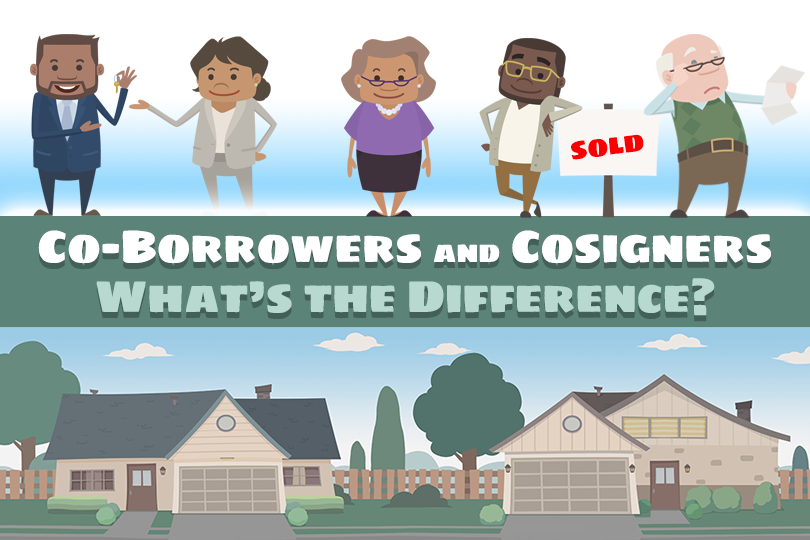Similarities and Differences Between Co-Borrowers and Cosigners
September 2, 2023
What Is a Co-Borrower?
A co-borrower is someone who is listed on the mortgage loan application alongside the primary borrower. They share equal responsibility for repaying the loan and are typically co-owners of the property being financed. During the loan application process they're required to by provide their income details, credit history, and other financial information to help meet the lender's qualification requirements.
Co-borrowers have a legal stake in the property and may have their names on the title and the mortgage documents. FHA loans allow for co-borrowers, including spouses or family members, to combine their incomes and credit profiles to qualify for a larger loan amount or to meet the lender's requirements.
What is a Cosigner?
A cosigner is not typically listed on the mortgage application but can be used in some cases to help the primary borrower qualify for an FHA loan. They're primary role is to provide additional assurance to the lender that the loan will be repaid, and do this by agreeing to assume responsibility for the loan if the primary borrower defaults.
Unlike co-borrowers, cosigners do not have a legal stake in the property being purchased. They don't own or have any rights to the property.
FHA loans are primarily underwritten based on the creditworthiness and financial situation of the primary borrower. In most cases, FHA loans require the borrower to meet the qualifications without the use of a cosigner.
The Bottom Line
The key difference is that a co-borrower is directly involved in the mortgage application, shares equal responsibility for the loan, and has a legal stake in the property, while a cosigner is not directly listed on the application, does not have ownership rights in the property, and provides additional assurance to the lender without being financially involved to the same extent as a co-borrower.
FHA loans are more commonly associated with co-borrowers rather than cosigners, but lending guidelines can vary if a family member is involved. Check with the specific lender for their policies regarding co-borrowers and cosigners on FHA loans.

FHA Loan Articles
April 16, 2025There are smart uses for cash-out refinancing loan proceeds and uses for that money that may work against the borrower. We examine some of those choices below, starting with using an FHA cash-out refinance for investment purposes. Is this a good idea?
April 15, 2025House hunters sometimes face a curveball when the appraisal for a home they want to buy with an FHA mortgage is lower than the offer. Is this a deal-breaker? Believe it or not, it isn't the end of the road. A low appraisal can sometimes be just a bump in the road. In other cases, you may wish to walk away from the deal. Here's your game plan to navigate this situation...
April 14, 2025 Buying a home with an FHA loan can be an exciting and achievable goal. This quick quiz helps you gauge your understanding of FHA loans and what it takes to make a winning offer on your new dream home. Take a few moments to answer the questions and see how prepared you are to navigate this crucial stage of your home-buying journey.
March 31, 2025Is 2025 the right year for you to consider an FHA streamline refinance? These mortgages are for those who want a lower interest rate, a lower monthly payment, or to move out of an adjustable-rate mortgage and into a fixed-rate loan. We examine some of the critical features of FHA streamline refinances.
March 27, 2025Did you know there are FHA loans that let house hunters buy multi-family properties such as duplexes and triplexes? FHA rules for these transactions is found in HUD 4000.1, including owner-occupancy, require that one unit serve as the borrower’s primary residence. Some house hunters ask why this rule exists. Some believe the rule serves as a lender risk mitigation strategy.







